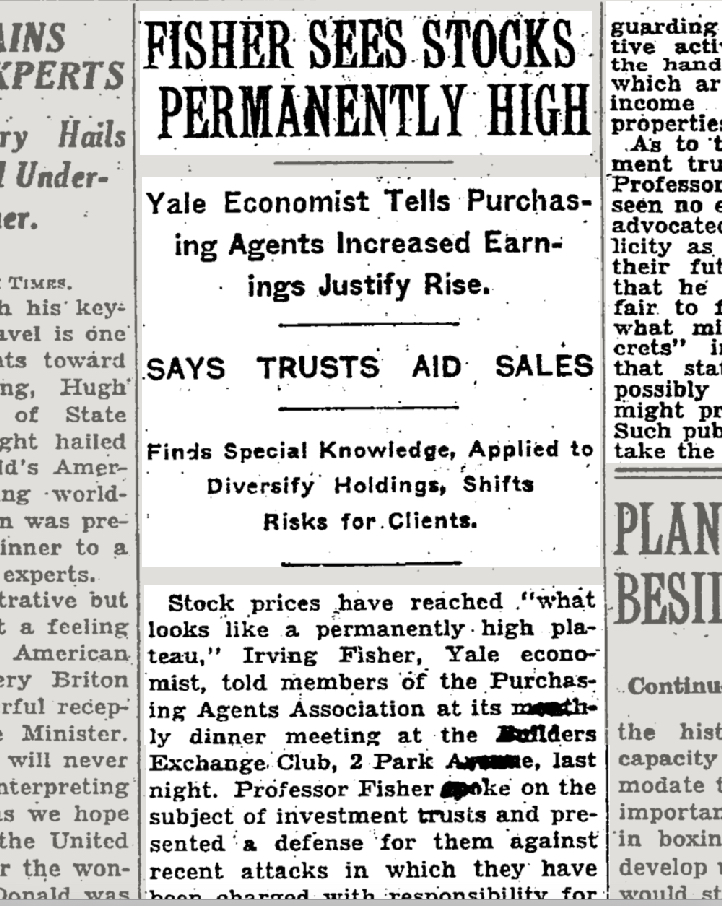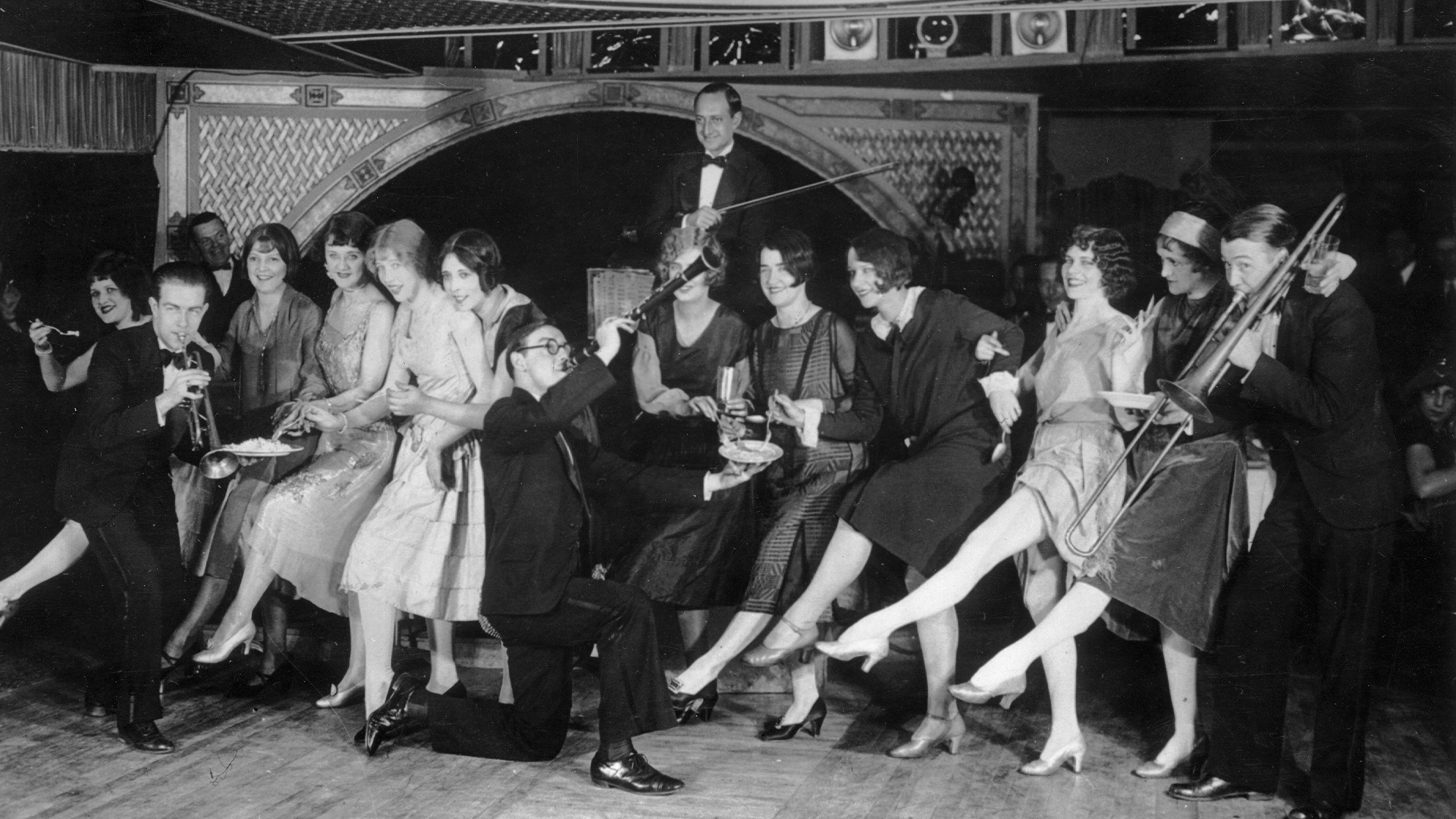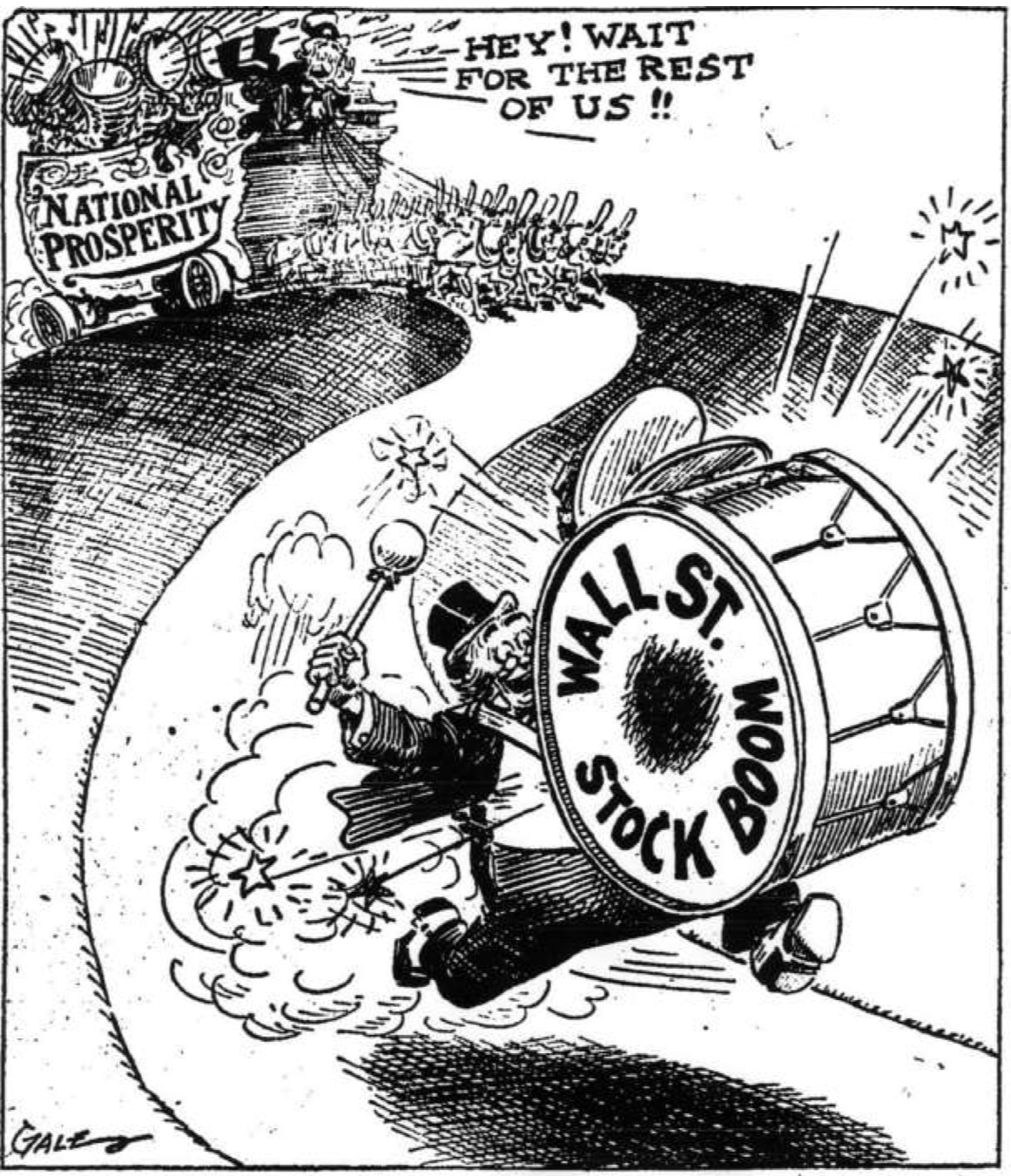
"Fisher Sees Stocks Permanently High." The New York Times, October 16, 1929


"Fisher Sees Stocks Permanently High." The New York Times, October 16, 1929
During World War One, the US manufactured and sold many weapons to the Allies. Around 17 billion dollars were made by the weapon manufacturers, and annual incomes went from 580 dollars in 1914 to more than 1300 dollars by the end of the decade.[1] This boom in financial growth led to the Roaring '20s, a period of economic upsurge. It was a time of euphoric optimism because of the speed and convenience in America, and many were looking for ways to earn money fast. Having a period of economic growth in itself is not bad, but paired with no government intervention set up a very fragile situation.
During the 1920s, Americans were looking for quick and easy ways to earn money. People spent their savings, borrowed money, and gained loans from the bank to invest in stocks on the margin. Buying or investing on margin meant borrowing money from a bank broker to purchase stock. If the company was doing well, the value of the stocks gained value, and the value of the Dow also rose. As companies did well and stocks gained value, the Dow rose. According to the Federal Reserve, "by 1929 the Dow Jones Industrial Average increased sixfold from 63 in 1921 to 381."[2] And after prices peaked, economist Irving Fisher proclaimed, “stock prices have reached ‘what looks like a permanently high plateau.’”[3] In other words, America was witnessing a period of rampant growth through speculation. This speculation contributed to the fragility and instability of the economy.
"It was an age of miracles, it was an age of art, it was an age of excess, and it was an age of satire." -- F. Scott Fitzgerald [4]

“Getting Ahead of the Band Wagon” Los Angeles Times, November 24, 1928.
Header Image: "Female flappers kicking, dancing, and having fun while musicians perform during a Charleston dance contest at the Parody Club." Photo by Hulton Archive/Getty Images, january 22, 1926
[1] The Roaring 20s Documentary — World History Project. Directed by Thomas Bolles, 2017
[2] Federal Reserve, Stock Market Crash of 1929, 22 November 2013
[3] Fisher, Irving, New York Times, 16 October 1929
[4] F.Scott Fitzgerald, Echoes of the Jazz Age (New York: Scribners Sons, 1931), p. 14.